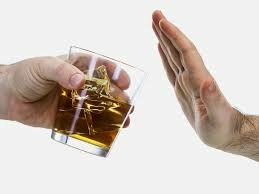Behavioral Health: Addiction Is a Chronic Brain Disease
December 29, 2016 Tom Kimball, Ph. D.
In a conversation between MAP Clinical Directors Kerby Stewart, M.D., and Tom Kimball, Ph. D., LMFT they discuss how addiction is chronic brain disease and the stigma associated with the disease of addiction.
How is addiction stigma being transformed by reliable and measure outcomes data?
Kerby: Well there’s no doubt that there’s a lot of stigma associated with addiction. And in my experience that stigma is largely grounded in fear and uncertainty about the nature of the disease process -- uncertainty associated with recovery. Recovery is something we can count on, we can measure, we can guide it, we can overcome the stigma by producing great results, measuring those great results, and communicating those great results to our population as a whole.
Why is viewing Addiction as an illness, or disease, a matter of fact and not opinion?
Tom: We can very clearly see the changes in the structure and function of the brain by those who are struggling with addiction and those who are not. And those structure and function changes are responsible for the obsession and compulsion despite tremendous negative consequences. So it’s really not conjecture at all; in fact, it’s a scientific fact that those who suffer from addiction suffer from a brain disease.
In scientific terms, what happens to the addicted brain?
Kerby: The two main ways that our brain has evolved in order to respond to changing circumstances -- primary motivational systems in the brain, if you will -- are those of our stress response which is primarily associated with midbrain function and our reward pathway which unites both the midbrain and the prefrontal cortex. The reward pathway encourages through positive reinforcement behavior that we experience as rewarding, life promoting. Those are the things that give us pleasure or relief if we’re under stress. The stress response, I think we’re all familiar with that, that’s a negative reinforcer. But both of those two things reinforce behavior. Drugs that are abused by people, or misused, are misused because they activate the reward pathway and they promote relief from stress. So the brains of people who suffer from addiction are abnormally constructed around these two major motivational systems.
Tom: It may be that those who suffer from addiction are sensitive to stress from the very beginning -- that they feel under threat all the time. Even before they ever pick up, or use drugs, or use alcohol they feel threat. So once they use alcohol or drugs tremendous relief comes to them and the brain--the midbrain picks up on that and it elevates that in the hierarchy of survival needs.









